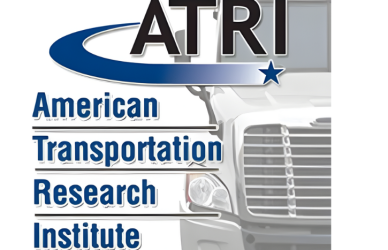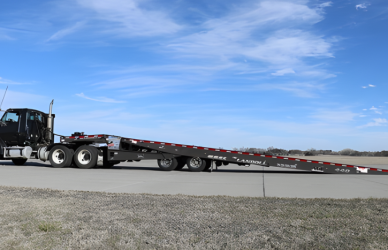Navigating the complex landscape of regulations affecting the trucking industry is challenging, and the constant flux of proposed legislation and rulemakings adds another layer of complexity. To assist industry professionals in staying informed, the Truckload Carriers Association (TCA) hosts a monthly webinar providing insights into ongoing developments and outlining TCA’s stance on various issues.
In the latest webinar held in January, David Heller, TCA’s senior vice president of government affairs and safety, covered a wide range of topics within the allotted hour. The session commenced with a discussion on the alarming increase in fatality crashes involving large trucks, reaching 5,370 in 2021, with 872 truck drivers losing their lives in these incidents.
“It kind of gives us a wakeup call as to where we are and what we need to do when it comes to improving safety on our roadways,” Heller said. “And 555 of those drivers were not wearing their seatbelt. It’s one of those situations where certainly we need to reverse the trend, and some of those talks are going on right now in DC as we speak.”
Truck parking, a persistent concern in the industry, was also addressed.
“This is the number one issue that the professional truck driver has out there,” Heller said.
He referenced a heat map illustrating trucks stationed in unauthorized areas, including side streets and freeway ramps near truck stops. Another visual displayed an average loss of $5,000 per driver caused by time spent searching for parking.
“We’ve made some headway recently,” Heller said. “There is a bill on Capitol Hill, two bills actually — House Bill 2367 and Senate Bill 1035 — that call for $755 million over three years to address the issue. Working with our lobbyists on Capitol Hill, we’re probably about five to six co-sponsors away from actually getting something moving on truck parking that would really make a difference.”
Recent attention from the U.S. Department of Transportation, which allocated over $300 million to tackle the national truck parking crisis, signals progress in addressing this major challenge.
While the Bipartisan Infrastructure Law of 2021, with its $110 billion allocation, has positively impacted infrastructure spending, lingering issues persist.
“What happened between 2021 and when the infrastructure bill passed is that there was a tremendous increase in the cost of construction, and that increase rose dramatically,” Heller said. “The funding that was passed in the infrastructure bill doesn’t equate to 2023 prices that it cost to actually build roads and bridges.”
Ongoing efforts encompass supply chain solutions and the development of various trucking bills, such as the Motor Carrier Safety Selection Standard Act, a bathroom access bill, and the Workforce Improvement Act.
“There are several pieces of legislation that are currently being talked about on Capitol Hill,” Heller said. “The Highway Accident Fairness Act, which is lawsuit abuse, anything size and weight certainly has crept into the conversation, autonomous vehicle centric legislation, along with employee-driver-centered legislation like the license acts or veterans or truck driver incentive acts. There’s also an anti-speed limiter bill we’re going to talk about.”
Heller emphasized that upcoming events, such as the 2024 November presidential election, may influence legislative directions as political maneuvering intensifies. The Drug and Alcohol Clearinghouse remains a pertinent issue, with increasing numbers of drivers testing positive for substances and encountering difficulties in the return-to-duty process.
“Marijuana, by far, at 57.2%, is the number one substance identified in these drug tests,” Heller said. “You do have to look about where you are in the United States in terms of legalized recreational use states.”
Discussions on oral fluid and hair follicle testing continue. The former was allowed by a recent U.S. Department of Transportation rulemaking, pending the certification of laboratories. Although hair testing has demonstrated efficacy, official approval is still pending.
The proposed speed limiter rule, gathering over 15,000 comments, has faced delays and is now postponed until at least May, awaiting a final ruling.
“A supplemental Notice of Proposed Rulemaking was supposed to come out Dec. 29, 2023,” Heller said. “It never came out.”
Heller also covered a spectrum of topics in the webinar, including changes to the compliance, safety, and accountability program, updates to the carrier fitness determination process, the young driver apprenticeship program, proposals for trailer side underride guards, automatic emergency braking, concerns about lawsuit abuse, and the evolving landscape of electric vehicles.
Source: The Trucker











